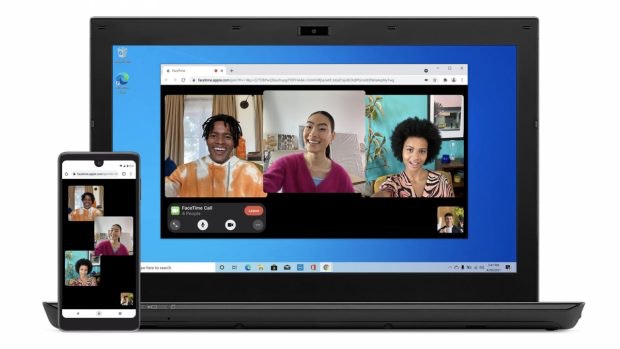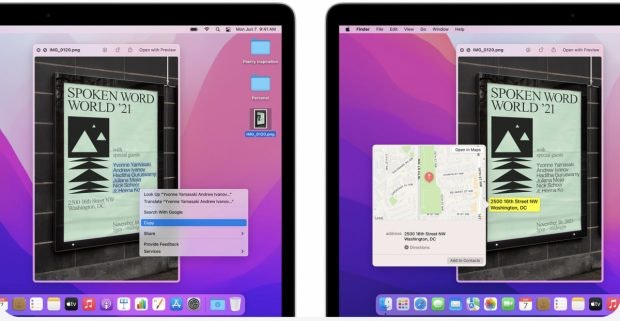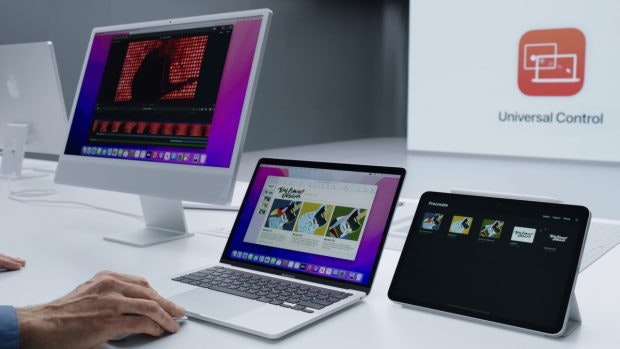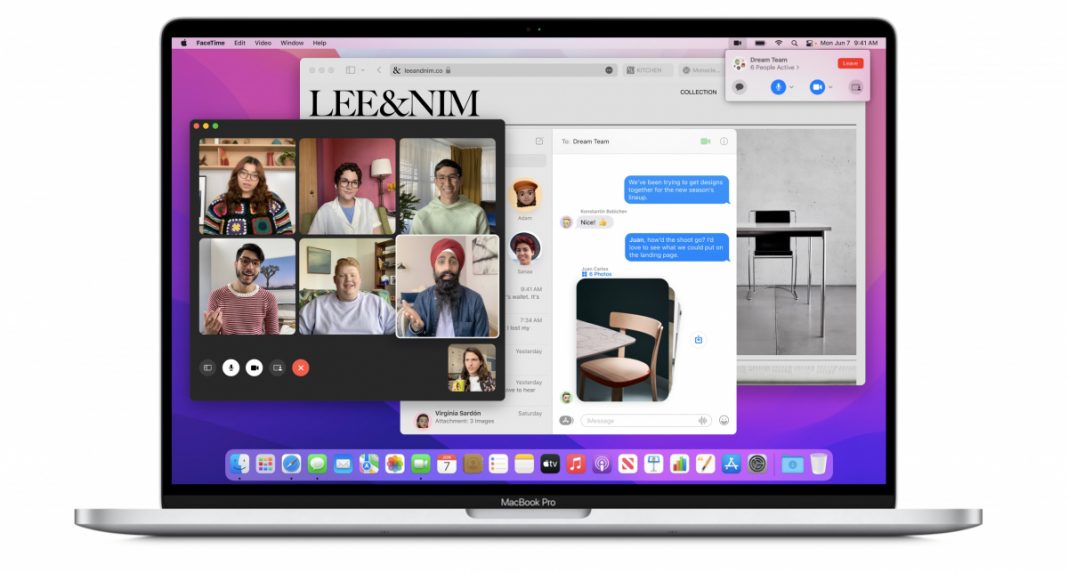macOS Monterey has received a release date. Apple’s new desktop operating system will be available to everyone on October 25, 2021. In addition to the newly announced Macbook Pro, the following devices will receive the free update.
The release of macOS Monterey announced at WWDC 2021 has been completed after ten betas and will soon be available for download to all owners of compatible Macs. However, not all devices that received macOS Big Sur will test the new version, and some functionality will not be available on Intel Macs.
After Apple removed some older devices from the compatibility list for the major update of macOS Big Sur, Monterey continues. So the 2015 Macbook, 2013 Macbook Air, Macbook Pro (late 2013) as well as iMacs from 2014 remain officially on macOS 11 Big Sur. This ends the update journey for the respective devices.
The following Macs are still compatible with macOS 12:
- iMac (Late 2015) and later
- Mac Pro (Late 2013) and later
- iMac Pro (2017) and later
- Mac Mini (Late 2014) and later
- Macbook Air (Early 2015) and later
- Macbook (Early 2016) and later
- Macbook Pro (Early 2015) and later

Like iOS 15, macOS Monterey gets the Shareplay functionality. (screenshot: t3n; Apple)
With macOS Monterey, Apple is bringing its platforms closer together. Much of the new macOS functionality is consistent with features Apple brought or will bring to iOS 15 and iPadOS 15 in September.

With Facetime, iOS 15 and Monterey users can also use Facetime with Android and Windows users. (Photo: t3n; Apple)
These include Facetime’s Shareplay feature, 3D audio for more spatial audio and a quick feedback feature. The focus function, 3D map materials for a small number of areas, real-time text recognition in images and live text are part of the update.

Live Text is also part of macOS Monterey. (Photo: t3n; Apple)
Apple is also bringing the shortcuts introduced with iOS 13 to the desktop, and Safari has also received a major update. The Universal Control (“Smooth Control”) functionality announced in June also comes with the Monterey. This allows users to: Work with a mouse and keyboard thus seamlessly switching between Mac and iPad without having to set up the function. According to Apple, it is also possible to drag and drop content between macOS Monterey and iPadOS 15 devices.

Universal Control connects iPad to Macbook and iMac. (Photo: Apple)
According to Apple, some functions can only be used with new computers with internal processors. Intel Macs excluded.

macOS 12: Among other things, the new portrait mode will not be available for Intel Macs. (screenshot: t3n; Apple)
Exclusive functions include, for example, direct text recognition of images, with which the content of the text recognized in them can be copied, translated and searched. Facetime’s new portrait mode can’t be used on Intel Macs either, according to the footnote on the Monterey preview page.
In addition, the interactive 3D globe in Apple Maps is not compatible with Intel Macs, nor is the new, more detailed Maps material, which is initially only available in London, New York, Los Angeles and San Francisco. Extended text-to-speech functionality in other languages such as Danish, Norwegian, Finnish, and Swedish can only be used on Macs with Apple’s own chips.
Even if the latest beta version of macOS Monterey seems mostly stable, users should wait for one update or another before installing the new OS version on their production machines. As a rule, there is still a bug or other error hidden in the final version, which is discovered only when the operating system is used by a large number of people.
You may also be interested in it

“Unapologetic pop culture trailblazer. Freelance troublemaker. Food guru. Alcohol fanatic. Gamer. Explorer. Thinker.”




